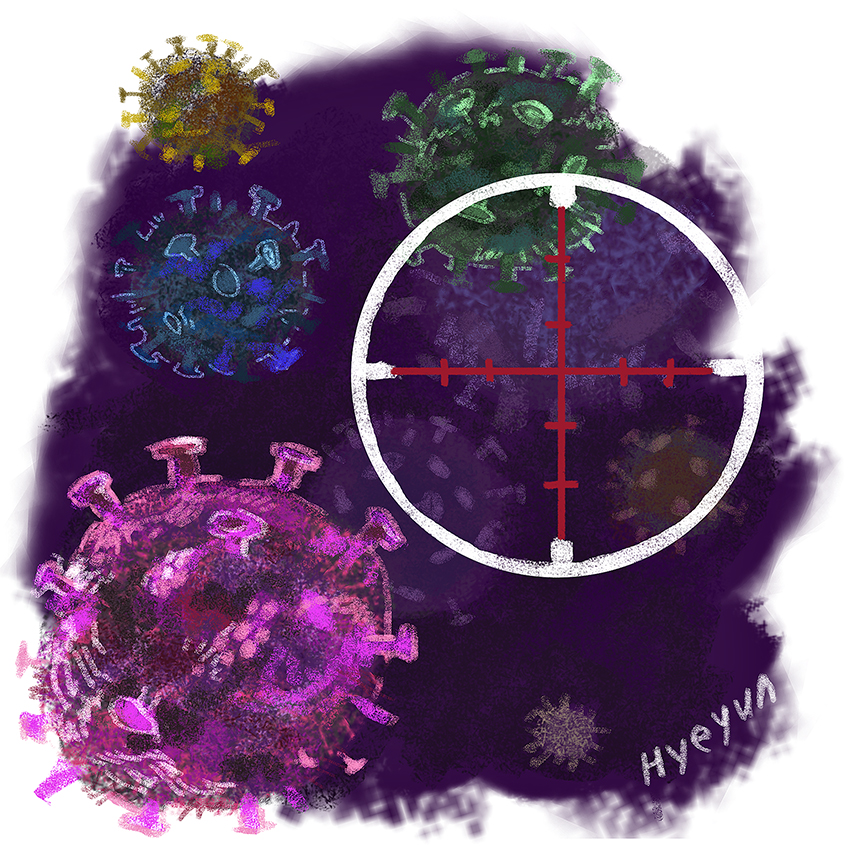Researchers have discovered a group of antibodies that puts them on track towards developing a vaccine to treat HIV.
Last month, researchers at UT and Duke University published a study in the journal Science Immunology about their discovery of a lineage of antibodies that has the ability to neutralize 99 percent of existing strains of HIV. According to the study, these broadly neutralizing antibodies are unique because they are able to bind to the virus’ plasma membrane, a hard-to-access but crucial location that interferes with the viral life cycle.
HIV interferes with the body’s immune system by attacking T-cells, or white blood cells that fight off infection. Although it has been 18 years since scientists tracked the origin of HIV to chimpanzees in West Africa, no vaccine approved for clinical use currently exists.
“The mutative and diverse features of the HIV virus make it hard to comprehend,” said Sebastian Schätzle, a postdoctoral research fellow at UT and one of the authors of the study. “We don’t have good therapeutics against HIV, and we don’t have a vaccine.”
The study began with the discovery of a patient infected with HIV who was able to produce unique antibodies. In this patient, the researchers found seven variants of the DH511 B cell. The presence of the B cell showed that the human body can produce these seven antibodies.
However, when UT biomedical engineering professor George Georgiou examined the blood, he noticed three of the variants of the antibodies didn’t appear in the protein sequences.
“Although the body has the blueprints to produce certain antibodies, it doesn’t always do so,” Schätzle said. “Not everyone who gets infected with HIV can elicit very good antibodies. By studying how different people respond to the actual virus and how they come up with their antibodies, we can use this to design a vaccine to induce antibodies artificially.”
In the next part of the study, researchers mixed and matched two HIV antibodies to create a hybrid antibody that can neutralize most strains of HIV. One of the antibodies came from memory B cells, or cells that can remember pathogens, and the other came from blood plasma.
Once they are able to understand how patients develop effective antibodies, other scientists can use this information to create a vaccine for HIV, Schätzle said.
“These experiments are incredibly expensive and take years,” Schätzle said. “But this project is a pretty big collaboration. In one or two years, we’ll probably have enough information from studies like these to try another vaccine design.”















